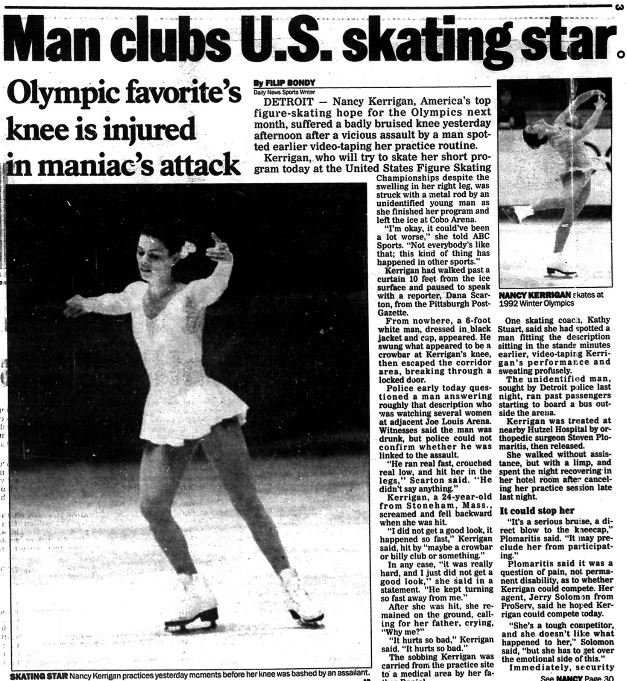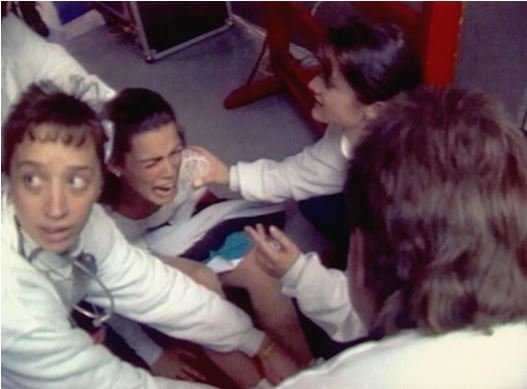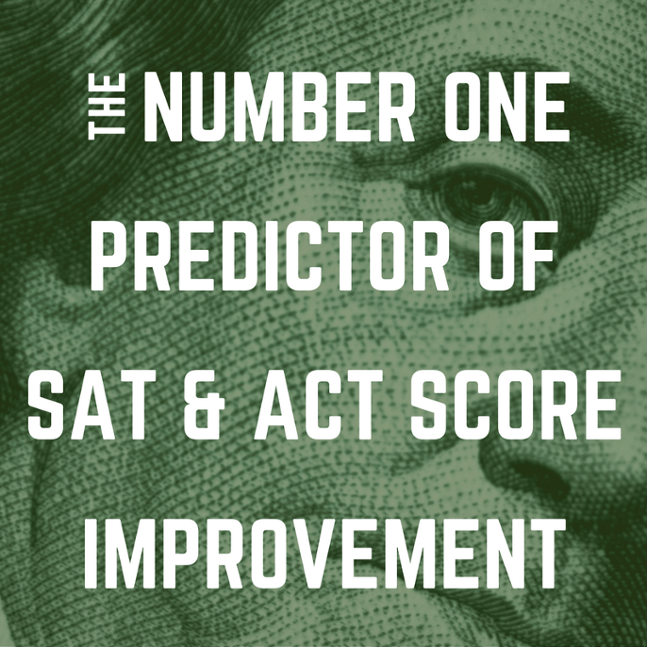The College Admissions Bribery Scandal
Updated on July 4, 2023
It’s not often that my Google News alert brings up stories from TMZ.com. In truth, I thought I’d blocked all content from TMZ a few years ago when I decided to live a Kardashian-free life. Yet somehow, a TMZ photo of Felicity Huffman was one of the first things in my news feed one fateful Tuesday morning. Weird.
If you’re reading this, you’re almost certainly up to speed on the college admissions bribery scandal. If not, then you can Google “college admissions,” “bribery scandal,” “Felicity Huffman,” “Aunt Becky,” or practically anything else to find news articles on the topic.
Documents unsealed in a Massachusetts courtroom revealed a rather sophisticated operation involving bribery, money laundering, mail fraud, and various other schemes. The intention was to circumvent the college admissions process to enable low-performing, high-status students gain admission to schools they wouldn’t have had a prayer of getting into otherwise.
The end result: 50 arrests, at least two dozen parents (including Aunt Becky and her husband) have pled guilty, and we have gotten an eye-opening look at the lengths some people will go to use their wealth to circumvent the system.
The “cheating” scheme…
Check out the Mark Riddell charging document.
Thus far, we’ve heard a lot about the cheating part of the operation. This makes sense because it’s easier to wrap your head around cheating on the SAT® than it is to picture committing mail fraud on the SAT®. Cheating is more on the scale with what we’re prepared to imagine taking place. In reality, this “cheating ring” is better described as a racketeering conspiracy, involving 50 wealthy and well-connected adults.
The word “cheating” has also been used inarticulately by a number of reporters attempting to describe the crimes of Mark Ridell, which were unsealed in a separate charging document. In it, the prosecutors describe how Mark Riddell helped students cheat on the SAT® and ACT® in Florida and Texas.
To most people, “cheating on a test” involves some risk that you’ll be caught by an authority figure in the room. But if you’re paying a test administrator $10,000.00 to look the other way, you’re not so much cheating on the test as you are bribing a test administrator. Whether or not you’re sitting at the desk is frankly immaterial to the case. If Riddell could have come up with another $1,000.00 for the administrator, he probably could have arranged to bubble in answers out by the pool.
… wasn’t actually a CHEATING scheme.
The point is, this was not a sophisticated cheating scandal. It was a brazen cheating scheme, made possible by a pretty sophisticated conspiracy. So, while there are lessons for ACT and College Board about test place security, this shouldn’t be framed as a watershed moment for college admissions testing. As someone who has long advocated for more equitable college admissions, I’m glad that this matter has been investigated, and I hope everyone involved will face the criminal charges they so richly deserve.
Personally—and professionally—I wish the media coverage would do a better job of emphasizing that the scheme bears no resemblance to the scrupulous educational consulting services provided by college planners and test-prep professionals across the country every single day.
Test prep, as an industry, is a victim of its own highly-effective marketing language. For 40 years, test-prep firms have advertised their exclusivity and super special, secret tips. So it’s no surprise that the test-prep industry, as a whole, has been regarded as guilty by association since this story broke. Still, the fact remains that the vast majority of test-prep companies would never even consider becoming involved in anything like this scheme.
I know this because my company has provided 100% custom-branded test-prep workbooks and software to elite tutors for more than a decade. Many of these tutors have delivered test-prep tutoring and college admissions consulting to fantastically wealthy families. In my years of working with these elite tutors, I have never once heard them mention anything like this taking place. This level of cheating is beyond the scope of anything we would have thought possible. And that’s because it’s not cheating, purely speaking.
It was a BRIBERY scheme.
It was a bribery scheme (and mail fraud, money laundering, and a host of other crimes). The essential element to pulling this off wasn’t sourcing a smart, unscrupulous tutor. It was the access to a massive charitable foundation, with which to bribe test administrators, college coaches, and athletic directors. This is not a simple tale of cheating on a test. This level of historic deception could have only been executed by those in a very select cadre of both the extraordinarily wealthy and morally bankrupt.
“... RIDDELL conspired with Singer and others known and unknown to the United States Attorney to commit mail fraud and honest services mail fraud by (1) cheating on college entrance exams by bribing test administrators to allow RIDDELL to secretly take the exams in place of actual students, or to replace the students’ responses with his own; and (2) using the facade of a charitable organization to conceal the nature and source of the bribes to the test administrators and the payments to RIDELL. ”
Check out the charging documents, here
Fake Athletes
It appears that William Rick Singer arranged to bribe coaches at elite universities to knowingly recruit non-athletes as college athletes. Court documents go into pretty significant detail as to how everything went down with the bribery, money laundering, and various other fraudulent activities.
Essentially, rich parents made “donations” to Singer’s charitable organization, The Key Worldwide Foundation. Those payments were used to bribe the coaches and athletic directors. It’s not a very complicated scheme, really.
What makes this part of the scheme almost comical is that some coaches requested fake backstories and profiles to make the recruitments seem more plausible. Apparently, photos were staged and even photoshopped.
“Investigators became suspicious when they came into possession of a highlight reel showing film director Michael Bay’s kid kicking a 52-yard field goal, after which the football exploded — along with the scoreboard, stadium, both teams’ buses, and, for some reason, the International Space Station.”
Of course, none of this is actually funny. For every wealthy kid who got hooked-up with an unearned athletic recruitment, a more deserving student wasn’t able to attend. And this was 100% knowable to the parents who eagerly participated in the illegal scheme. It’s not entirely fair to compare their participation to Tanya Harding’s bodyguard knee-capping Nancy Kerrigan, but it’s a Venn Diagram worth sketching.
The difference, I’d imagine, is that the wealthy, privileged conspirators believe that a criminal act is less nefarious if the person being harmed doesn’t know they’re being harmed. The secrecy of the act and the anonymity of the person being harmed is the key.
Speaking of “the key,” I’ve got some thoughts.
William Rick Singer ran a for-profit college counseling operation called The Key. Ostensibly, it provided test-prep services in addition to college counseling. Nothing wrong with that. However, it appears that is the only connection to test prep in the whole scheme. And yet, it’s being treated as though this is the story of an elite college counseling and test-prep firm that went too far. Articles and pundits have repeatedly implied that there’s no clear line between legitimate test-prep tutoring and… bribing university officials in six states?!?
This narrative is nonsense. The individuals who orchestrated these criminal acts are criminals. They are not educators. They’re not providing elite tutoring or secret tips and tricks. They are criminals committing crimes.
One more thing about William Rick Singer’s company, “The Key.” Objectively, The Key is a great name. The imagery is perfect. Keys unlock doors. Doors are opportunities. But Singer went with the name “The Key” —singular—as in the only key. That’s clever, but he could have gone further. I submit that Singer should have called his enterprise “The Skeleton Key.” Hear me out.
First of all, it’s more appropriate given that he was allegedly running a shadowy, illegal conspiracy. I mean, The Skeleton Key could practically have been the working title of the 2000 cinematic masterpiece, The Skulls, starring Paul Walker (R.I.P., brother) and a guy from Dawson’s Creek… I think.
The Skulls (2000), 9% on Rotten Tomatoes (That would probably be higher if it were called The Skeleton Key)
A skeleton key doesn’t just open a door, it opens ALL THE DOORS! And that’s what Singer is alleged to have been selling: a very expensive means of opening doors, many of which you are not authorized to walk through.
Now you may be thinking, “That sounds like a battering ram.” And you’re right. They are similar, but with a few very important differences. The chief difference is that a battering ram will always make itself known. You can’t sneak in using a battering ram. And, in that way, a battering ram has a kind of honesty about it.
Skeleton keys, on the other hand, are tools of the deeply dishonest. And given that this is a story about very wealthy people conspiring to secure unfair advantages in secret, I’m going to say this is a skeleton key move, for sure.
Related article: The Number One Predictor of SAT & ACT Score Improvement.
If you’re interested in this topic, I hope you’ll check out the article I’ve linked to above, which examines test score improvement as a function of money.
Prosecution’s exhibit 299: guy from Dawson’s Creek (not a crew athlete) portrays a crew athlete in the trailer for The Skulls, which by now you agree should have been called The Skeleton Key.
Teach Students to Use Keys and Respect Doors.
Key Users are rule followers. They work hard and accept the results of a fair competition. Coaches, like test-prep tutors, encourage students to become Key Users. And coaches, like test-prep tutors, work to help athletes improve their skills ahead of a competition or test.
In both cases, the objective is legitimate, indeed noble. When a coach or tutor provides accountability, emphasizes hard work, and insists on fair play, students are pushed toward personal growth as much as they are pushed toward personal achievement. This is the mindset of a Key User, wherein any person who works hard can improve their chances of winning. This is what we should aspire to be as individuals and members of our industry.
Don’t Enable Those Who Use Battering Rams.
It’s pretty rare that anyone even considers using a battering ram. This type of person brazenly violates the rules while declaring that they don’t apply to them—for some unspecified reason. This person announces that the competition is rigged, and that efforts to enforce fair play are biased against them. They might even declare themselves the winner, telling everyone to reject the scoreboard they can see with their own eyes. Later, when faced with consequences of their cheating, the Battering Rammer accuses everyone else of cheating. We don’t really know what happens next. Fingers crossed.
Don’t Sell—Or Even Market—Skeleton Keys.
This brings us to those who use skeleton keys. Singer and his criminal cohort made it their mission to sell skeleton keys. Unlike a Key User or a Battering Rammer, a Skeleton Key User attempts to gain an unfair, clandestine advantage.
It can be tempting to represent your test-prep tutoring as delivering super special, secret tips and tricks. Resist that temptation. It will lead you to attract parents who expect to buy scores and students who expect to see score improvements without putting in the work.
Revisiting the sports analogy, a Skeleton Key User has no problem taking performance enhancing drugs or bribing officials. They might even secretly pay someone else to compete in their place or attempt to buy their way onto the podium without competing at all. These people are scoundrels (and in the case of this particular scandal—jail bound).
The Wrong Lesson
I don’t doubt that anti-test zealots will seize on this media coverage to condemn “high stakes testing” and the test-prep industry as two of the great evils of our time. But this oversimplification is wrongheaded in a variety of ways. Most obviously, their recommendation would exacerbate the very problem that they claim to be attempting to solve.
The question they never answer is how removing the only standardized part of college admissions could possibly result in fairer college admissions.
Without the SAT® or ACT®, colleges would be forced to evaluate students based on high school GPA (which plenty of data indicates is an increasingly inflated measure, particularly at wealthier schools); extracurricular activities (which are regularly exaggerated, if not photoshopped!); and personal statements (which wealthier students often pay to have professionally edited. Seriously, just Google it).
The Right Lesson(s)
I’m not sure. Even now, this scandal continues to develop, and more facts will no doubt emerge. There are, however, a few things I’m comfortable putting down in a blog post:
We need a more secure test. The obvious, if not immediately attainable, solution is a computer-based test. I’ve written about this in past articles. Both College Board and ACT have been working on this for a while, but ACT appears to be moving more aggressively toward computer-based testing as a solution. Which is odd, considering the SAT® has more frequently endured bad press for test security breaches.
With the advent of COVID-19 and distance learning becoming a temporary “new normal,” there is even more incentive to go this route. It is possible that the test date cancellations that occurred this spring could have been avoided had both ACT and College Board been farther down this road of fully-secured, digitized testing.
If a computer-based test cannot be rolled out soon, then we at least need some assurances of better testing security, including improved chain of custody protocol for all test booklets and answer sheets before, during, and after the test.
No more recycling test questions. This one is long overdue. The world has gotten smaller. There’s this thing called the internet. People are using it to communicate. Some of those people have bad intentions.
If/when test questions are leaked, they should immediately be made available for download on the test maker’s website. The number one concern of test makers must be to minimize the competitive advantage enjoyed by bad actors. Even if a trove of stolen questions is not live (eligible for use on future exams), it would still provide a competitive advantage for preparation purposes. A test maker could torpedo that advantage by publishing all compromised test questions, free of charge, on its homepage.
Note: this policy, if enacted, would not be particularly good for the test prep industry, or my business. But I’m not writing this as a lobbyist. I’m writing this as someone who wants to see the problem solved.
The Deeper Lesson(s)
Wherever there are scarce resources, there will be opportunities for money and privilege to influence decision makers in determining who gets what, where, when, and how. That’s the basis of politics. And that’s the problem. Access to higher education, while scarce, is NOT a finite resource. Its scarcity has been exacerbated by decades of bad public policy. We must get serious about expanding access.
We can and should work to reduce the scarcity of quality education by properly funding education at all levels, including higher education.
We should work to remove all arbitrary or unjust barriers that prevent people or groups from having access to education, especially in cases where those barriers fall along socioeconomic, racial, and gender lines.
And in lieu of the immediate remedies to items 1. and 2., we must push back against the idea that we can reduce the influence of money and privilege in college admissions by removing standardized tests—the one part of the process that’s most difficult for those with money and privilege to circumvent.
This is a problem that must be addressed. At the same time, we should not allow today’s outrage, justified though it may be, to drive us to adopt a solution that would enhance the undue influence of money and privilege in college admissions.
If you enjoy this line of inquiry, then check out Malcolm Gladwell’s Revisionist History podcast. In each episode, he attempts to unpack an historical event to show that the popular understanding is dead wrong. Whether you agree with him or not, it’s fascinating and important work. The lessons we learn from history guide our current and future policy. This stuff matters!
As always, thanks for reading! Be sure to subscribe to our blog to stay up to date on the latest test-prep industry news!







